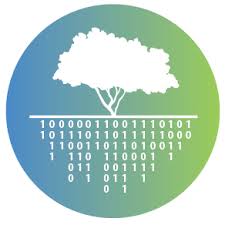 Following a peer-review process, the Computer Networks international journal published by Elsevier has accepted to publish the scientific manuscript entitled “CYBELE – Fostering Precision Agriculture & Livestock Farming Through Secure Access to Large-Scale HPC Enabled Virtual Industrial Experimentation Environments Fostering Scalable Big Data Analytics”, that has been co-authored by UBITECH. In this paper, Konstantinos Perakis and his co-authors introduce CYBELE, a platform aspiring to safeguard that the stakeholders involved in the agri-food value chain (research community, SMEs, entrepreneurs, etc.) have integrated, unmediated access to a vast amount of very large scale datasets of diverse types and coming from a variety of sources, and that they are capable of actually generating value and extracting insights out of these data, by providing secure and unmediated access to large-scale High Performance Computing (HPC) infrastructures supporting advanced data discovery, processing, combination and visualization services, solving computationally-intensive challenges modelled as mathematical algorithms requiring very high computing power and capability.
Following a peer-review process, the Computer Networks international journal published by Elsevier has accepted to publish the scientific manuscript entitled “CYBELE – Fostering Precision Agriculture & Livestock Farming Through Secure Access to Large-Scale HPC Enabled Virtual Industrial Experimentation Environments Fostering Scalable Big Data Analytics”, that has been co-authored by UBITECH. In this paper, Konstantinos Perakis and his co-authors introduce CYBELE, a platform aspiring to safeguard that the stakeholders involved in the agri-food value chain (research community, SMEs, entrepreneurs, etc.) have integrated, unmediated access to a vast amount of very large scale datasets of diverse types and coming from a variety of sources, and that they are capable of actually generating value and extracting insights out of these data, by providing secure and unmediated access to large-scale High Performance Computing (HPC) infrastructures supporting advanced data discovery, processing, combination and visualization services, solving computationally-intensive challenges modelled as mathematical algorithms requiring very high computing power and capability.
As a matter of fact, according to McKinsey & Company, about a third of food produced is lost or wasted every year, amounting to a $940 billion economic hit. Inefficiencies in planting, harvesting, water use, reduced animal contributions, as well as uncertainty about weather, pests, consumer demand and other intangibles contribute to the loss. Precision Agriculture (PA) and Precision Livestock Farming (PLF) come to assist in optimizing agricultural and livestock production and minimizing the wastes and costs aforementioned. PA is a technology-enabled, data-driven approach to farming management that observes, measures, and analyzes the needs of individual fields and crops. PLF is also a technology-enabled, data-driven approach to livestock production management, which exploits technology to quantitatively measure the behavior, health and performance of animals.
Big data delivered by a plethora of data sources related to these domains, has a multitude of payoffs including precision monitoring of fertilizer and fungicide levels to optimize crop yields, risk mitigation that results from monitoring when temperature and humidity levels reach dangerous levels for crops, increasing livestock production while minimizing the environmental footprint of livestock farming, ensuring high levels of welfare and health for animals, and more. By adding analytics to these sensor and image data, opportunities also exist to further optimize PA and PLF by having continuous data on how a field or the livestock is responding to a protocol. For these domains, two main challenges exist: 1) to exploit this multitude of data facilitating dedicated improvements in performance, and 2) to make available advanced infrastructure so as to harness the power of this information in order to benefit from the new insights, practices and products, efficiently time-wise, lowering responsiveness down to seconds so as to cater for time-critical decisions.
To this end, CYBELE aspires to reach far beyond the currently offered services, and offer a holistic platform targeting both domains of PA and PLF, and offering services not only to farmers, but also to a plethora of stakeholders involved in the agri-food value chain (research community, SMEs, entrepreneurs, etc.). CYBELE also innovates in providing to these stakeholders integrated access to a vast amount of very large scale open and proprietary datasets of diverse types and coming from a variety of sources (including sensor data, environmental and climate historical data, satellite and aerial images). Last but not least CYBELE offers the technological tools to the aforementioned stakeholders for experimentation with these data assets, and for the composition of novel services through the corresponding modelling environments, while abstracting the infrastructure required to support the development and the delivery of these resource demanding services.
The CYBELE concept, approach and technical solution will be evaluated and technically validated through a series of 9 demonstrators, 5 from the domain of Precision Agriculture, and 4 from the domain of Precision Livestock Farming.
The paper is accessible at: https://www.sciencedirect.com/science/article/pii/S1389128619305353


